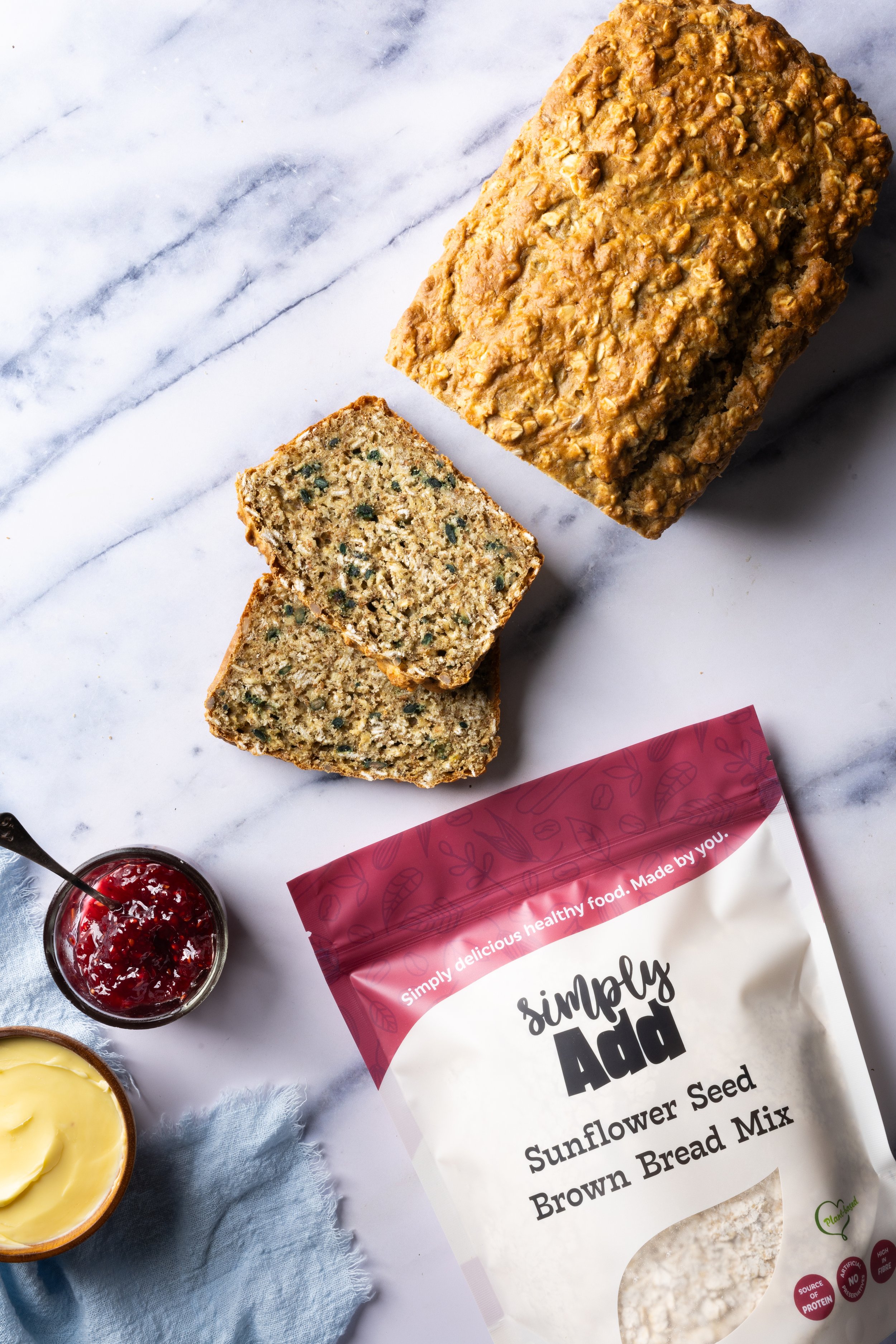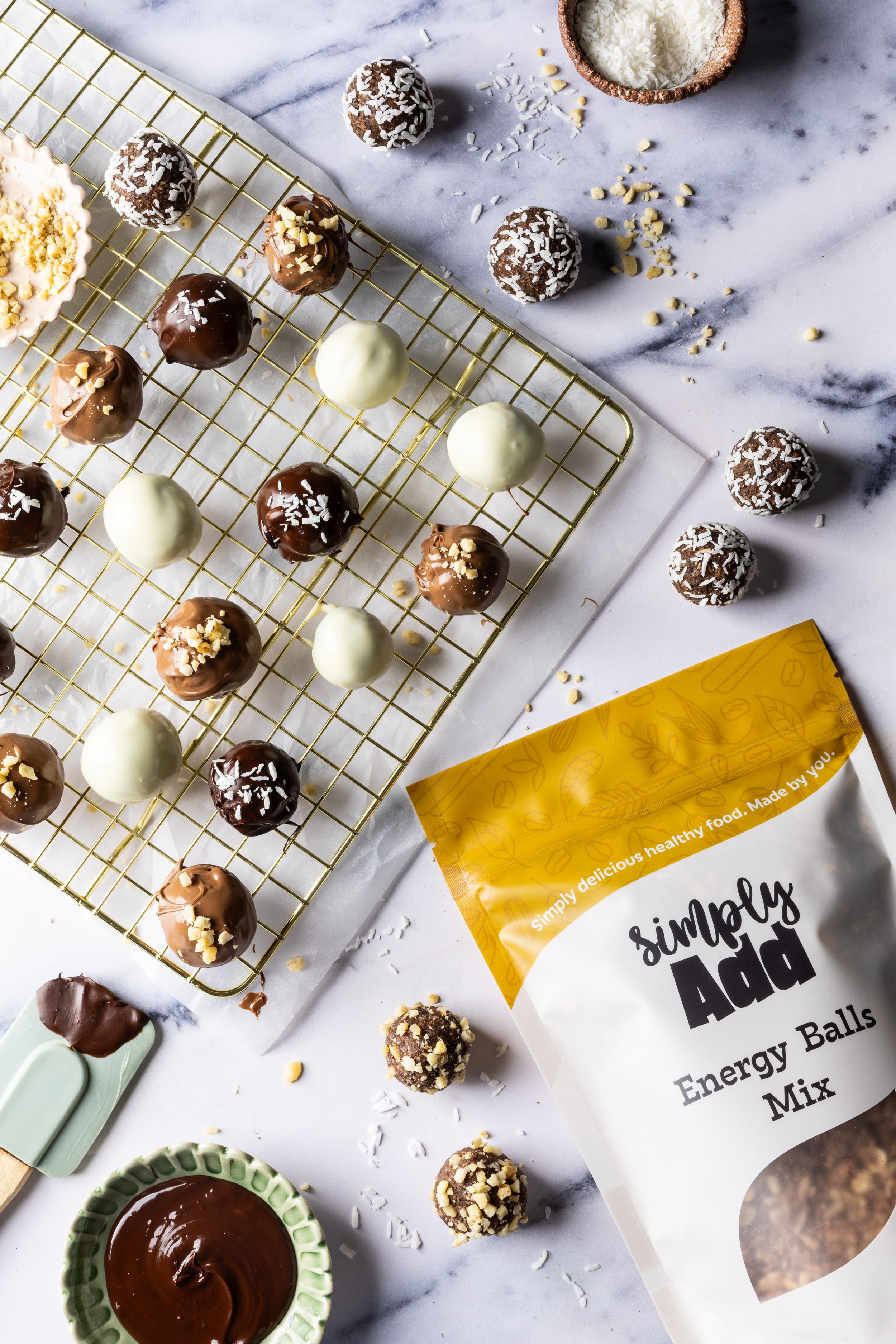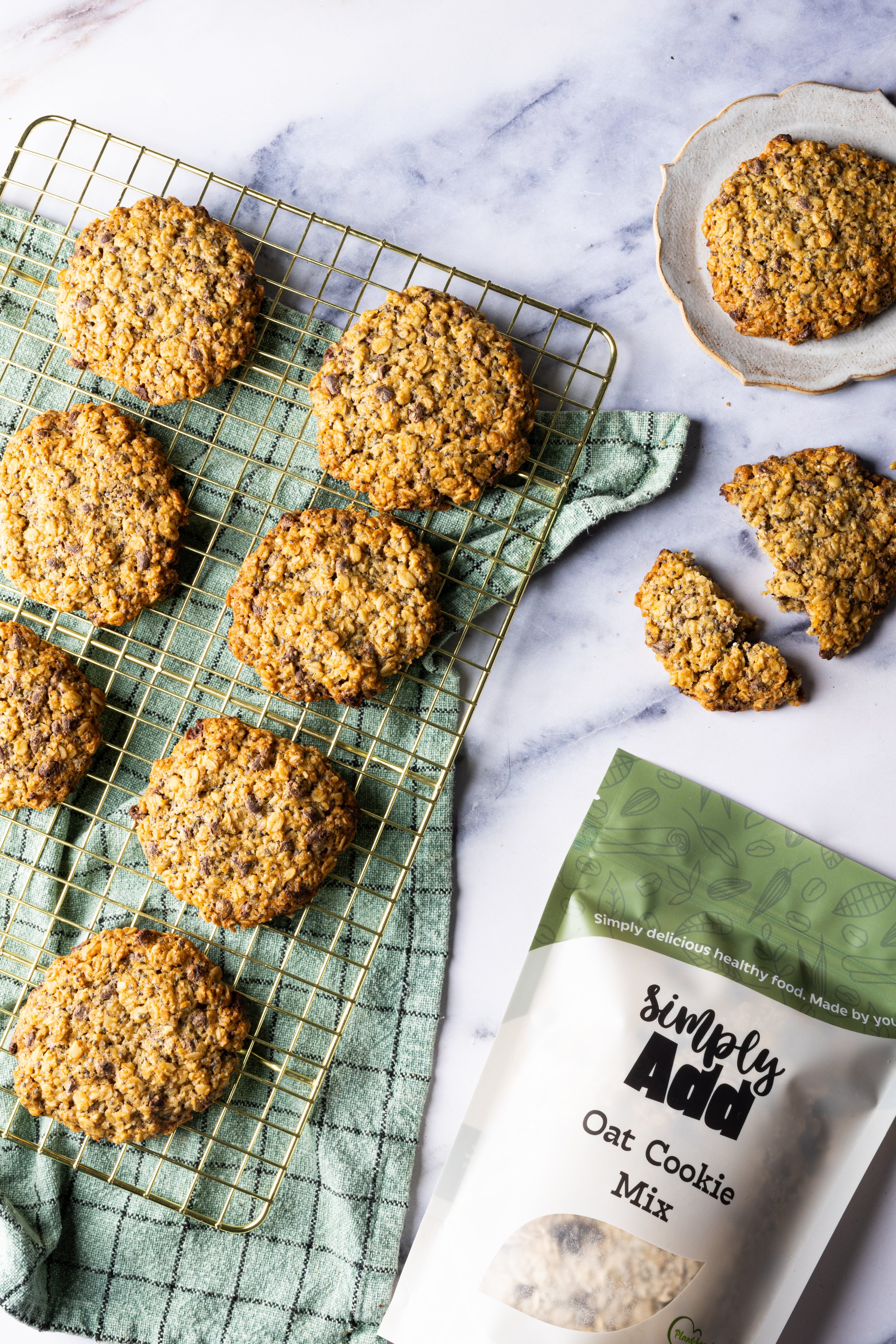Simply Add has grown from a passion of helping others to live healthy happy lives. Each recipe is packed full of plant-based, wholefood goodness with nothing added but nature’s finest superfoods. I truly believe that good health comes from the inside out.
Let’s get back to basics and Simply Bake!
Sunflower Seed Brown Bread
€7.95
Oat Bread
Nut & Seed Loaf
Energy Balls
€12.95
Energy Bars
Granola
Oat Cookies
€9.95
Overnight Oats
Seeded Crackers
from €25.00





















